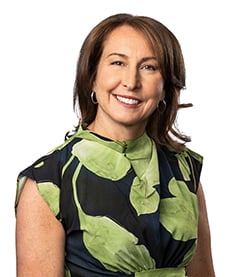- Market services
-
Compliance audits & reviews
Our audit team undertakes the complete range of audits required of Australian accounting laws to help you to help you meet obligations or fulfil best practice procedures.
-
Audit quality
We are fiercely dedicated to quality, use proven and globally tested audit methodologies, and invest in technology and innovation.
-
Financial reporting advisory
Our financial reporting advisory team helps you understand changes in accounting standards, develop strategies and communicate with your stakeholders.
-
Audit advisory
Grant Thornton’s audit advisory team works alongside our clients, providing a full range of reviews and audits required of your business.
-
Digital assurance
We capture actionable, quality insights from data within your financial reporting and auditing processes.

-
Corporate tax & advisory
We provide comprehensive corporate tax and advisory service across the full spectrum of the corporate tax process.
-
Private business tax & advisory
We work with private businesses and their leaders on all their business tax and advisory needs.
-
Tax compliance
We work alongside clients to manage all tax compliance needs and identify potential compliance or tax risk issues.
-
Employment tax
We help clients understand and address their employment tax obligations to ensure compliance and optimal tax positioning for their business and employees.
-
International tax
We understand what it means to manage tax issues across multiple jurisdictions, and create effective strategies to address complex challenges.
-
GST, stamp duty & indirect tax
Our deep technical knowledge and practical experience means we can help you manage and minimise the impact of GST and indirect tax, like stamp duty.
-
Tax law
Our team – which includes tax lawyers – helps you understand and implement regulatory requirements for your business.
-
Innovation Incentives
Our national team has extensive experience navigating all aspects of the government grants and research and development tax incentives.
-
Transfer pricing
Transfer pricing is one of the most challenging tax issues. We help clients with all their transfer pricing requirements.
-
Tax digital consulting
We analyse high-volume and unstructured data from multiple sources from our clients to give them actionable insights for complex business problems.
-
Corporate simplification
We provide corporate simplification and managed wind-down advice to help streamline and further improve your business.
-
Superannuation and SMSF
Increasingly, Australians are seeing the benefits, advantages and flexibility of taking control of their own superannuation and retirement planning.

-
Payroll consulting & Award compliance
Many organisations are grappling with a myriad of employee agreements and obligations, resulting in a wide variety of payments to their people.
-
Cyber resilience
The spectrum of cyber risks and threats is now so significant that simply addressing cybersecurity on its own isn’t enough.
-
Internal audit
We provide independent oversight and review of your organisation's control environments to manage key risks, inform good decision-making and improve performance.
-
Financial crime
Our team helps clients navigate and meet their obligations to mitigate crime as well as develop and implement their risk management strategies.
-
Consumer Data Right
Consumer Data Right (CDR) aims to provide Australians with more control over how their data is used and disclosed.
-
Risk management
We enable our clients to achieve their strategic objectives, fulfil their purpose and live their values supported by effective and appropriate risk management.
-
Controls assurance
In Australia, as with other developed economies, regulatory and market expectations regarding corporate transparency continue to increase.
-
Governance
Through fit for purpose governance we enable our clients to make the appropriate decisions on a timely basis.
-
Regulatory compliance
We enable our clients to navigate and meet their regulatory and compliance obligations.

-
Forensic accounting and dispute advisory
Our team advises at all stages of a litigation dispute, taking an independent view while gathering and reviewing evidence and contributing to expert reports.
-
Investigations
Our licensed forensic investigators with domestic and international experience deliver high quality results in the jurisdictions in which you operate.
-
Asset tracing investigations
Our team of specialist forensic accountants and investigators have extensive experience in tracing assets and the flow of funds.

-
Mergers and acquisitions
Our mergers and acquisitions specialists guide you through the whole process to get the deal done and lay the groundwork for long-term success.
-
Acquisition search & strategy
We help clients identify, finance, perform due diligence and execute acquisitions to maximise the growth opportunities of your business.
-
Selling a business
Our M&A team works with clients to achieve a full or partial sale of their business, to ensure achievement of strategic ambitions and optimal outcomes for stakeholders.
-
Operational deal services
Our operational deal services team helps to ensure the greatest possible outcome and value is gained through post merger integration or post acquisition integration.
-
Transaction advisory
Our transaction advisory services support our clients to make informed investment decisions through robust financial due diligence.
-
ESG and sustainability due diligence
As environmental, social, and governance (ESG) considerations become increasingly pivotal for dealmakers in Australia, it is important for investors to feel confident in assessing transactions through an ESG lens.
-
Business valuations
We use our expertise and unique and in-depth methodology to undertake business valuations to help clients meet strategic goals.
-
Tax in mergers & acquisition
We provide expert advice for all M&A taxation aspects to ensure you meet all obligations and are optimally positioned.

-
Corporate finance
We provide effective and strategic corporate finance services across all stages of investments and transactions so clients can better manage costs and maximise returns.
-
Debt advisory
We work closely with clients and lenders to provide holistic debt advisory services so you can raise or manage existing debt to meet your strategic goals.
-
Working capital optimisation
Our proven methodology identifies opportunities to improve your processes and optimise working capital, and we work with to implement changes and monitor their effectiveness.
-
Capital markets
Our team has significant experience in capital markets and helps across every phase of the IPO process.
-
Debt and project finance raising
Backed by our experience accessing full range of available funding types, we work with clients to develop and implement capital raising strategies.
-
Private equity
We provide advice in accessing private equity capital.
-
Financial modelling
Our financial modelling advisory team provides strategic, economic, financial and valuation advice for project types and sizes.
-
Payments advisory
We provide merchants-focused payments advice on all aspects of payment processes and technologies.

-
Voluntary administration & DOCA
We help businesses considering or in voluntary administration to achieve best possible outcomes.
-
Corporate insolvency & liquidation
We help clients facing corporate insolvency to undertake the liquidation process to achieve a fair and orderly company wind up.
-
Complex and international insolvency
As corporate finance specialists, Grant Thornton can help you with raising equity, listings, corporate structuring and compliance.
-
Safe Harbour advisory
Our Safe Harbour Advisory helps directors address requirements for Safe Harbour protection and business turnaround.
-
Bankruptcy and personal insolvency
We help clients make informed choices around bankruptcy and personal insolvency to ensure the best personal and stakeholder outcome.
-
Creditor advisory services
Our credit advisory services team works provides clients with credit management assistance and credit advice to recapture otherwise lost value.
-
Small business restructuring process
We provide expert advice and guidance for businesses that may need to enter or are currently in small business restructuring process.
-
Asset tracing investigations
Our team of specialist forensic accountants and investigators have extensive experience in tracing assets and the flow of funds.

-
Independent business reviews
Does your company need a health check? Grant Thornton’s expert team can help you get to the heart of your issues to drive sustainable growth.
-
Commercial performance
We help clients improve commercial performance, profitability and address challenges after internal or external triggers require a major business model shift.
-
Safe Harbour advisory
Our Safe Harbour advisory helps directors address requirements for Safe Harbour protection and business turnaround.
-
Corporate simplification
We provide corporate simplification and managed wind-down advice to help streamline and further improve your business.
-
Director advisory services
We provide strategic director advisory services in times of business distress to help directors navigate issues and protect their company and themselves from liability.
-
Debt advisory
We work closely with clients and lenders to provide holistic debt advisory services so you can raise or manage existing debt to meet your strategic goals.

-
Business planning & strategy
Our clients can access business planning and strategy advice through our value add business strategy sessions.
-
Private business company secretarial services
We provide company secretarial services and expert advice for private businesses on all company secretarial matters.
-
Outsourced accounting services
We act as a third-party partner to international businesses looking to invest in Australia on your day-to-day finance and accounting needs.
-
Superannuation and SMSF
We provide SMSF advisory services across all aspects of superannuation and associated tax laws to help you protect and grow your wealth.
-
Management reporting
We help you build comprehensive management reporting so that you have key insights as your business grows and changes.
-
Financial reporting
We help with all financial reporting needs, including set up, scaling up, spotting issues and improving efficiency.
-
Forecasting & budgeting
We help you build and maintain a business forecasting and budgeting model for ongoing insights about your business.
-
ATO audit support
Our team of experts provide ATO audit support across the whole process to ensure ATO requirements are met.
-
Family business consulting
Our family business consulting team works with family businesses on running their businesses for continued future success.
-
Private business taxation and structuring
We help private business leaders efficiently structure their organisation for optimal operation and tax compliance.
-
Outsourced CFO services
Our outsourced CFO services provide a full suite of CFO, tax and finance services and advice to help clients manage risk, optimise operations and grow.
-
ESG, sustainability and climate reporting
There is a growing demand for organisations to provide transparency on their commitment to sustainability and disclosure of the nonfinancial impacts of their business activities. Commonly, the responsibility for sustainability and ESG reporting is landing with CFOs and finance teams, requiring a reassessment of a range of reporting processes and controls.
-
ESG, sustainability and climate advisory
With the ESG and sustainability landscape continuing to evolve, we are focussed on helping your business to understand what ESG and sustainability represents and the opportunities and challenges it can provide.
-
ESG, sustainability and climate reporting assurance
As the demand for organisations to prepare information in relation to ESG & sustainability continues to increase, through changes in regulatory requirements or stakeholder expectations, there is a growing need for assurance over the information prepared.
-
ESG and sustainability due diligence
As environmental, social, and governance (ESG) considerations become increasingly pivotal for dealmakers in Australia, it is important for investors to feel confident in assessing transactions through an ESG lens.

-
Management consulting
Our management consulting services team helps you to plan and implement the right strategy to deliver sustainable growth.
-
Financial consulting
We provide financial consulting services to keep your business running so you focus on your clients and reaching strategic goals.

-
China practice
The investment opportunities between Australia and China are well established yet, in recent years, have also diversified.
-
Japan practice
The trading partnership between Japan and Australia is long-standing and increasingly important to both countries’ economies.
-
India practice
It’s an exciting time for Indian and Australian businesses looking to each jurisdiction as part of their growth ambitions.
-
Singapore practice
Our Singapore Practice works alongside Singaporean companies to achieve growth through investment and market expansion into Australia.
-
Vietnam practice
Investment and business opportunities in Vietnam are expanding rapidly, driven by new markets, diverse industries, and Vietnam's growing role in export manufacturing, foreign investment, and strong domestic demand.

-
 Client Alert Unlock 2025: government grants updateIf government grants are part of your 2025 strategy, take note of the available quarter one funding opportunities. With increasing inflationary pressures, government grants can be an essential alternative funding source for businesses with critical investment projects.
Client Alert Unlock 2025: government grants updateIf government grants are part of your 2025 strategy, take note of the available quarter one funding opportunities. With increasing inflationary pressures, government grants can be an essential alternative funding source for businesses with critical investment projects. -
 Report Agribusiness, Food & Beverage Dealtracker 2024Merger & Acquisition (M&A) and equity market activity in the Agribusiness, Food & Beverage (Ag, F&B) sector is undergoing a strategic shift, as investors have become more selective and increasingly cautious in response to global economic uncertainty.
Report Agribusiness, Food & Beverage Dealtracker 2024Merger & Acquisition (M&A) and equity market activity in the Agribusiness, Food & Beverage (Ag, F&B) sector is undergoing a strategic shift, as investors have become more selective and increasingly cautious in response to global economic uncertainty. -
 Client Alert Government Grants in FY25As we embark on a new financial year, it’s crucial to take a strategic approach to understanding the government grants landscape.
Client Alert Government Grants in FY25As we embark on a new financial year, it’s crucial to take a strategic approach to understanding the government grants landscape. -
 Client Alert Consultation on foreign resident CGT rules commencesTreasury is taking steps to ensure fairer tax treatment for foreign resident investors by tightening Australia's foreign resident Capital Gains Tax (CGT) regime. Proposed changes aim to broaden the CGT base and enhance integrity, impacting infrastructure, energy, agriculture, and more.
Client Alert Consultation on foreign resident CGT rules commencesTreasury is taking steps to ensure fairer tax treatment for foreign resident investors by tightening Australia's foreign resident Capital Gains Tax (CGT) regime. Proposed changes aim to broaden the CGT base and enhance integrity, impacting infrastructure, energy, agriculture, and more.
-
Renewable Energy
Transformation through energy transition

-
Flexibility & benefits
The compelling client experience we’re passionate about creating at Grant Thornton can only be achieved through our people. We’ll encourage you to influence how, when and where you work, and take control of your time.
-
Your career development
At Grant Thornton, we strive to create a culture of continuous learning and growth. Throughout every stage of your career, you’ll to be encouraged and supported to seize opportunities and reach your full potential.
-
Diversity & inclusion
To be able to reach your remarkable, we understand that you need to feel connected and respected as your authentic self – so we listen and strive for deeper understanding of what belonging means.
-
In the community
We’re passionate about making a difference in our communities. Through our sustainability and community engagement initiatives, we aim to contribute to society by creating lasting benefits that empower others to thrive.
-
Graduate opportunities
As a new graduate, we aim to provide you more than just your ‘traditional’ graduate program; instead we kick start your career as an Associate and support you to turn theory into practice.
-
Vacation program
Our vacation experience program will give you the opportunity to begin your career well before you finish your degree.
-
The application process
Applying is simple! Find out more about each stage of the recruitment process here.
-
FAQs
Got questions about applying? Explore frequently asked questions about our early careers programs.
-
Our services lines
Learn about our services at Grant Thornton
-
Current opportunities
Current opportunities
-
Remarkable people
Our team members share their remarkable career journeys and experiences of working at Grant Thornton.
-
Working at Grant Thornton
Explore our culture, benefits and ways we support you in your career.
-
Current opportunities
Positions available.
-
Contact us
Get in touch
The Australian family business doesn’t just mean the café down the road.
Spanning nearly every industry and size, the nimble nature of family businesses has meant that many have thrived during COVID – some even more so than their more corporatised competitors.
With many Australians shifting focus to support local businesses and Australian made products, COVID-19 has provided family businesses with an opportunity to implement positive changes that many businesses have been contemplating for some time – with renewed support from Australians consumers.
In this podcast, partners and family business advisors David Gibson and Kirsten Taylor-Martin speak with us about what makes a family business tick, getting the right skills in the right roles, and whether COVID will be a catalyst for a changing of the guard.
Available on Apple Podcasts, Spotify or within your browser
Podcast transcript
Velvet-Belle Templeman
Welcome to Boardroom.Media. My name is Velvet-Belle Templeman, and you're listening to Grant Thornton’s Navigating the New Normal Podcast Series. I'm here talking to Kirsten Taylor Martin and David Gibson, partners specialising in family business at Grant Thornton. Kirsten is a family business adviser, specialising in developing governance structures and succession plans to ensure family businesses grow so generations to come. And David has over 15 years’ experience providing advisory services to some of Queensland's leading privately owned businesses and family groups. Thanks so much for joining us, Kirsten and David.
David Gibson
Thanks very much.
Kirsten Taylor Martin
Thank you.
Velvet-Belle Templeman
Now, firstly like me, a lot of people don't realise just how many Australian businesses are family owned and operated, something like 70 per cent and we're not just talking about small cafes down the road are we?
Kirsten Taylor-Martin
No, this is a real misconception. People feel that family business means small business and don't get me wrong, the little corner store or the cafe, or a lot of the franchisees, your Pizza Huts, Gloria Jeans are family businesses, but people actually drive past and walk past family businesses every day. So you've got the likes of Kennards Self Storage, Flower Power, King Living, Scenic World and Cue are family businesses. So they coming in all shapes and sizes, so quite large businesses are also family owned.
David Gibson
Yeah, absolutely, Kirsten. Up in Queensland, some of the biggest businesses in the market up here are still family business based and look, certainly some industries, the majority of participants will be a family business, primary production and agriculture is a great example of that. And I think it's important to note, the size of the asset by the family business controls, FDA notes that it’s about $4.3 trillion, such a huge part of the Australian commercial landscape there.
Velvet-Belle Templeman
And are family businesses that much different to corporate businesses?
David Gibson
Yeah. Look, I think one of the key ways family businesses are different really is in the culture and the ethos. Many owners really view themselves as custodians of business to be passed between generations and look I think when adversity hits as in the current environment, quite often that can lead to some real resilience, which provides an advantage over some of the more corporatised competitors. And look, I think one of the other key ways there is just in the perhaps nimbleness of decision making and that can lead to capitalising on opportunities more quickly than their competitors.
Kirsten Taylor-Martin
I'm also finding that family businesses, their family values are shining through. They can really take their customers and their suppliers on the journey that they're going through. And we're finding that consumers are really quite loyal at the moment. They've changed how they want to buy. They really want to buy an Australian, they want to support Australian businesses. So I think this is where family businesses definitely have their advantage. And as long as they being really honest and telling the story and allowing the consumers to come along on the journey, it could be a real advantage for them.
Velvet-Belle Templeman
And coming into this pandemic family businesses prepared for doing business during COVID-19?
Kirsten Taylor-Martin
To be honest, I don't think any business was ready for the pandemic and family business is just no different. Where they are different is being family they really do come together in a time of crisis and I really want to fight for their family business. You also find that they're incredibly entrepreneurial. So at a time when you really needed to innovate, they've been able to. The other thing you find is although at the beginning they will risk absolutely everything to start with business, once the business is successful, they become incredibly conservative. So when you deal with family businesses, they usually have large amounts of cash in the bank and they have very low levels of debt. I think this is really going to help them come out of the pandemic easier and maybe it makes them look like they've coped or they were prepared for it, but I don't think they were actually preparing for a pandemic. It's just how they are in nature.
David Gibson
Yeah. A couple of the practical examples I’ve seen, potentially the biggest family businesses with strong governance structures and potentially boards with non-family members involved, they’ve been able to handle the disruption a little bit better, I think, given some of those process and, I guess, skillset advantages that that can bring. And I guess, at a practical level, some of the challenges around remote work here and ability to, I guess, quickly shift areas of operation in some of our family businesses potentially struggle with that a little bit more as opposed to some of their bigger more corporatised competitors. I think looking at our experience as a firm, that element of remote work is really going to be with us for a long time to come.
Velvet-Belle Templeman
Kirsten and Dave, what sort of things are you seeing and hearing from your clients and how they're innovating during this time?
Kirsten Taylor-Martin
A really great story. And I guess this is a little bit more of a pivot than an innovation, but a Scenic World. So Scenic World is in this Sydney Blue Mountains area and is in the tourism industry. So obviously COVID just made their business come to an absolute halt. But what they did is they went back to their family values and why are they in business? And a large part of it is to ensure that their local community had jobs and to give back to their local community. So they actually set up a popup store so that they could still keep some of their people in a job, but the store had things like toilet paper and hand sanitizer, which at that point in time were really hard to get your hands on and the store delivered the items to their local community.
So it was a really nice example of a total pivot. And you can imagine that business, that family, how would you be feeling when it just absolutely comes to a halt, but they were still able to get together and really go back to what their values and why they're in business and come up with a really creative idea to ensure that they were still delivering on the reason they were in business.
Another really great example is a collaboration example, of family businesses, but a local restaurant obviously had to quickly move to takeaways. And instead of using a Menulog or an Uber Eats, they approached another local family business in the limousine area because obviously their work had stopped and they asked whether they would like to deliver the food. So two family businesses, in two totally different industries coming together so that the consumer was receiving restaurant quality food delivered to them in a limousine. I just think that's a really nice example of how family businesses do things differently and really support one another.
David Gibson
Yeah. Look, I’ve seen some great examples of innovation in supply chains and supply chain security, I think has been on a real pressure in this crisis. And people having to ask things of their suppliers that they haven't asked before, get a little bit creative in terms of you know, sourcing product with that focus on Australian made. Some great examples there of in the medical industry of I think their favourite gin distillery in Victoria quickly shifted to production of medical grade hand sanitiser, which really allowed them to keep their operations going at really short notice. There's been some great examples of just a need to do things differently at short notice in our client base.
Velvet-Belle Templeman
Some really unique innovation examples there. Thank you. And it sounds like businesses really rose to the challenge presented by COVID, but with Melbourne going back into lockdown and an announcement on JobKeeper expected this week, how are your clients feeling at the moment?
David Gibson
I think pretty apprehensive. I think prior to the Melbourne situation clients were feeling a little bit more positive around certainty of the future here. But look, I think particularly given the Treasurer’s announcement on Thursday the 23rd around, I guess, their midterm review of JobKeeper and what that's going to look like going forward, will some industries be supported? Support might be pulled back for others. I think that's really keeping a lot of people awake at night, you know, family businesses quite often really view a lot of their employees as part of the family. And I think being able to underpin that relationship going forward is really challenging for a lot of people.
I think everyone's feeling really challenged for this ability around FY21 forecasts. There’s conversations starting with the banks where support is being provided around various types of debt obligations. So there's a need to forecast FY21. Everyone is saying it’s really hard to predict beyond three months, six months at the most. Things are changing so quickly. A really good example, or a really good solution we've seen there is really this concept of rolling three-month forecasts rather than a full year FY21 budget and banks seem quite receptive to that approach. It’s a practical, common sense solution, I think given the current challenges facing everyone.
Kirsten Taylor-Martin
Yeah, I agree because they're quite conservative in nature, family business owners, they're quite nervous at the moment. And I think also just because they have to make some hard decisions that they don't want to make. In many situations in the larger family businesses, they know personally they'll be okay, because they have wealth and property behind them. But for the business, there's going to be some tough decisions. And I'm also seeing quite a few are just starting to sell down properties and assets, even though they don't need to, but it's just their conservative nature and they just want to have the cash available to them should something happen.
Velvet-Belle Templeman
That really brings home the importance of moving online and perhaps embedding some long term changes. Are you seeing that start to happen?
David Gibson
Look, I think we're starting to say perhaps the restarting or the acceleration of some conversations around succession here, particularly with a view to business value. I think it's a fair general proposition that business in impacted industries, have seen their fair market value drop from this time 12 months ago and that might provide, I think, some opportunities here along that succession piece. I think particularly around the funding need to progress some of these transactions and certainly there's some issues there from a taxation perspective as well, whereby a lower business value may allow access to small business Capital Gains Tax concessions as an example, which might make some of those transactions easier to facilitate.
Velvet-Belle Templeman
I'm not sure I can imagine being in business with my parents or grandparents. Do you think COVID will provide that pivotal moment where we can see a change in the guard for some? What do you think the future holds?
Kirsten Taylor-Martin
I think this is an absolutely fascinating area. We have been predicting for the last 10 to 15 years that we're going to see this wave of generational change and it just doesn't happen. So currently we have in Australia, 5,000 people turn 65 every single week. And we thought that that would create a wave of generational change. But what we've actually seen is we have 80, 90 year olds still running the family businesses and they have absolutely no intention of passing the baton whatsoever to the next generation. But what you do find is often it can be a crisis that makes that decision happen. So for example, if the owner's best friend passed away or something like that, it's that trigger point that makes them realise life is short. I need to get out.
And I really wonder is this pandemic going to be that crisis point? Because there's a few different things, if you're an owner and you have the view that I've done business with way for so many needs, we're not going to change it. I've been successful. You're really going to struggle in this current climate because you have to be thinking outside the square at this point in time. So if you're not listening to the next generational ideas, the business will struggle. The other thing is with all the COVID safe policies, things were changing and still are on a daily basis. Are 80/90 year olds going to want to just keep up with all of that constant change. Could that be the point that makes them realise life’s too short, it's time for me to get out. And the other thing is that they’re in that age bracket where they're really at risk, so their family's not going to want them to be going out and meeting with customers or suppliers or coming into the business.
So could that be the point that makes them realise it's time to pass the baton to the next generation? But the only thing I want people to be mindful of is when people do pass it to the next generation in a crisis moment, that's where things can often go wrong. So currently in Australia, when you pass the baton to the next generation from second to third generation, only 12 per cent are successful. So we need to be really careful about where we're not creating that kind of, where family businesses just can't divide that change because it was just done at a crisis moment and they haven't bought the process through.
But if this pandemic is creating that moment for different businesses. Please contact your Grant Thornton relationship manager because we have a freedom model and our freedom model goes through the seven hurdles that we see can really undo a successful succession plan. So it's time to start planning if this is the crisis that makes you realise it's time to get the next generation ready to take over the business. So David, are you a gambler? Do you think this is going to be that moment where all the transitions start to happen?
David Gibson
Yeah, great point, Kirsten, absolutely. I think the succession issue is really going to become more important. Over the next period of time, I think all our clients are really examining their business models, potentially looking at redesigning business models around, I guess, this concept of the new normal that's going to be with us for a long time. It's clear, this is really a marathon we're in. It's not going to be out of it quickly.
I've already observed in some of my clients their conversation being well, who has the right skillset in our family that may be needed for the business over the period ahead and potentially that's some of the younger generations. Some of those skills around digital marketing and ecommerce, logistics, distribution. They’ve become incredibly important really quickly. So potentially are those members of the family, all of a sudden, really the ones to help drive a reshaped business into the future? And indeed, in some conversations, clients are now reflecting, well maybe do they need to look outside the family, in some cases for the first time, I guess, with people with the right skills to help guide the business into the future. So, absolutely, I think it's a an issue that's really become more important very quickly for a lot of our clients.
Velvet-Belle Templeman
Kirsten and David, thank you for your time.
David Gibson
Thank you.







































